A few years ago, traveling a potholed highway across dusty plains in Gujarat, India, I was in my element: exploring the crafts and culture of a remote corner of the world, joined by three other journalists. Our good-natured guide, Sam, knew Gujarat and its customs and history well. Although he was not worldly and had never traveled outside India, Sam was open-minded. Banter flowed easily as we bumped along.
At some point the conversation transitioned to living arrangements and I commented on how my husband had recently started working from home, and how we were adapting to share the space.
“You mean your wife,” Sam interjected.
No, my husband, I replied.
“No, you mean your wife.”
I turned to Sam and smiled. “No, I have a husband at home.”
For a moment, Sam froze, and then his eyes widened quizzically. “You’re married? To a man?”
Several minutes of confused back-and-forth ensued, as I tried to explain how laws in the United States had evolved to embrace same-sex marriage. Sam was equal parts aghast and intrigued. He seemed to go through a mental checklist to identify ways this did not add up.
“But who cooks dinner?”
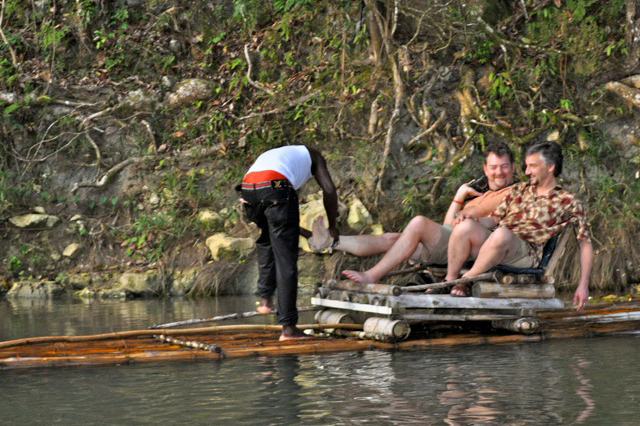
The Journey Begins
Each June, as rainbow stripes take over corporate logos, as allyship reaches out through social media and Pride marches set forth in cities and towns across America, I can’t help but reflect on how far the LGBTQ community has come over the last few decades.
Yes, I’m a glass half-full kind of guy.
For more than 25 years, I have been fortunate to be a travel journalist. But I don’t consider my work to be that of a gay journalist. That is, I rarely write about LGBTQ-specific travel, such as gay cruises or gay resorts.
I don’t often visit places like Provincetown and Key West, luxuriating in what fellow writer Kwin Mosby calls “the safety net of gay-friendly destinations.” I have no dating apps on my phone to meet locals; instead, I often travel with my husband of 35 years. Whether it’s at the registration desk when I verify we have a single-bedded room or by the pool where we share the kind of nose-in-book silence that longstanding couples do, we can be conspicuous by default.
In 1986, when my husband-to-be and I took our first vacation together, we were naive in our choice. We picked Jamaica, a country which soon emerged as the poster child for gay-unfriendly destinations.
Lured by the pulse of reggae and ads featuring lovers on a bucolic bamboo raft, I booked airline tickets through a Denver travel agent. Maybe she thought Chris and I were “just friends,” but she never advised us that Jamaicans might be unwelcoming to a same-sex couple. I picked up a brand-new “Guide to Jamaica” by Moon Publications, a book bereft of resort coverage but long on cultural context – useful on a first trip to the Caribbean.
In glancing through the book today I find not one word of caution to a gay or lesbian traveler.
text_ad use_post=’190714′
In Montego Bay we checked in at Doctor’s Cave Beach Hotel, amid what seemed to a monsoon. Day after day it rained, and while this was good for getting acquainted with ladies selling fruit and crafts at the market, we eventually succumbed to a worn-out cinema for a matinee showing of “Indiana Jones and the Temple of Doom.” At the box office we were offered tickets for the balcony or downstairs – we chose downstairs. Little did we know, kids and families sat in the balcony, and downstairs was where the prostitutes worked. Although the ladies gave up pursuing us after we explained that we really were there to see the movie, somehow the word got out that a couple of queers were seated in the theatre.
As the credits rolled we exited onto the street, where a half-dozen young guys were waiting. They laughed and pointed, shouting my least-favorite f-word, and followed us with taunts for a block in the rain before losing interest.
A couple days later the sun came out and we headed to Negril, landing in a funky beachfront guest house called Arthur’s Golden Sunset. Here, for $10 a night, we were welcomed and eased into a Jamaican groove. I don’t recall another taunt during our stay, but I remember wandering up the beach to a fancy all-inclusive resort named Sandals. We gawked at smiling lovers, a sprawling pool and boisterous swim-up bar. As we neared the edge of the pool, imagining it for the day we hit a lottery jackpot, a guard came up to shoo us away, noting that the resort was for couples only.
It didn’t take long to understand that Sandals, and a few other Jamaican resorts, defined the term “couples-only” in strictly heterosexual terms.
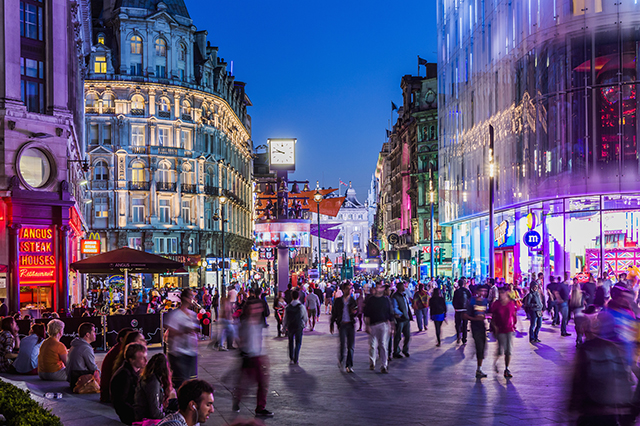
The Power of the Gay Dollar
Flash forward a decade to the start of my career as a travel writer. By this point, Chris and I had visited seven or eight Caribbean islands, which even included a return trip to Jamaica. Among my first projects was the “Fielding’s Caribbean” guidebook, and soon I became a contributing editor at Caribbean Travel & Life magazine. As my island connections multiplied, invites to be hosted at Sandals resorts arrived. I ignored the first few, then got annoyed with the chain’s PR representative.
“Why would I stay as a guest at a resort that won’t allow me to check in as a paying customer?” I asked. She was embarrassed, and the invites stopped coming.
But by 2003, when Sandals had grown to 12 resorts on five islands, the policy met its match. Under Mayor Ken Livingstone, Transport for London – the government agency that oversees most of the city’s transportation system – stopped accepting Sandals advertising.
With Britain being the company’s second-largest market, Sandals responded a year later by “refining” its policy, very quietly opening its doors to LGBTQ couples.
Of course, by this point some destinations were beginning to recognize the value of the gay dollar, led by Great Britain.
“We’ve reached out to LGBTQ+ travelers for a good 25 years now,” says Paul Gauger, senior vice president of VisitBritain’s Americas offices. Great Britain was the first foreign government to participate in Pride marches in the U.S.; in 2019, VisitBritain joined 29 Pride celebrations and events in the U.S. and across the Americas. “But we don’t just activate during Pride season,” adds Gauger, “it’s throughout the year.”
While Gauger notes that cities like London and Manchester have been a focus for much of the marketing, countryside and coastal vacations across England, Scotland and Wales are also promoted today.
“The community has changed,” says Gauger. “Not all gay and bisexual men want to be out partying all the time. There are gay and lesbian couples traveling with kids experiencing our family attractions, and there’s a greater number of people from the transgender and queer community traveling, too.”
Great Britain is hardly alone today in dedicating resources to attract LGBTQ visitors. International destinations from Argentina to Montreal hire research firm CMI to help them understand the dynamics of marketing to the community. In its 2019 report, CMI found that Canada and Mexico were the most frequent international destinations for America’s LGBTQ travelers, while Britain, France, Spain, Germany, and Italy were all visited by more than 6 percent of respondents in the previous year.
LoAnn Halden, a spokesperson for the International Gay and Lesbian Travel Association, points to Malta as one success story in the last five years.
“It’s a conservative country that almost overnight updated its laws and is now considered the best European country for LGBTQ+ rights,” says Halden.
In the U.S., New York City, Chicago, Las Vegas, Los Angeles and San Francisco have a long track record attracting LGBTQ visitors, but smaller cities are also getting in on the act.
In 2012 Columbus, Ohio hosted a fam (familiarity) trip for LGBTQ media and soon after began integrating same-sex couples into its marketing materials; last year, a gay couple was featured on the cover of Columbus’ visitor guide.
Roger Dudley, director of community and customer engagement for Experience Columbus, says travel priorities have evolved and not everyone wants to go to the big gay mecca cities. “Maybe they’ve checked those off their list,” adds Dudley. “Columbus is driving distance for a lot of people in the Midwest, so we’re a good place for long weekend.”
Even Salt Lake City, a destination identified with Utah’s conservative politics and the Mormon Church, has started marketing to the LGBTQ community. Eric Thompson, vice president of marketing for Visit Salt Lake, says the city has, on a per capita basis, a larger-than-average LGBTQ population.
“We felt like we needed to dedicate more resources in that direction,” explains Thompson, who adds that the city’s 2019 Pride celebration drew 80,000 people. “There’s been a lot of migration from other states to Utah, and gays and lesbians feel comfortable here.”
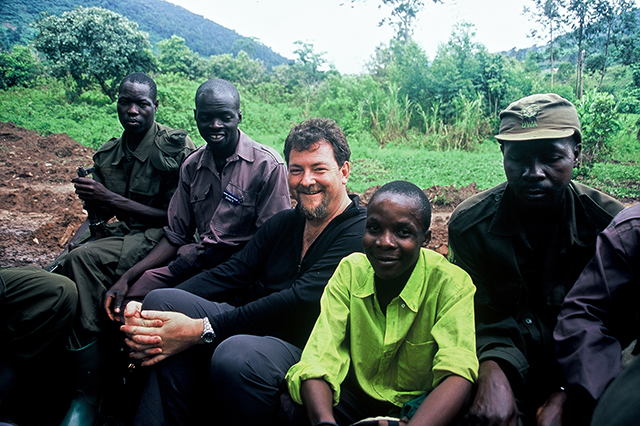
Still Work To Be Done
Feel comfortable? As a 6-foot-3-inch white man, I feel fairly comfortable almost everywhere I go. Work has taken me to some pretty unusual places, but it is rare for me to feel ill at ease when traveling. After all, being the fish out of water often makes for a better story. Still, often I find myself exploring the world in a bubble that masks the reality beyond the sheen.
Plant me amid the gilded embrace of a safari lodge in the Serengeti and it’s easy to overlook how Tanzania’s institutionalized homophobia preys on its citizens. Bask in the luxury of a cruise floating down the Nile River, and who cares that Egypt’s General Directorate for Protecting Public Morality uses dating apps to entrap and imprison gay men?
Make no mistake: Many of the larger companies involved in tourism today earn a perfect score of 100 on the Human Rights Campaign’s annual list of best places to work for LGBTQ equality. This includes American, Southwest and United airlines, and the Choice, Marriott International, Hilton, InterContinental, and Wyndham hotel groups. I’m delighted when companies like these integrate a rainbow into their social media stream, even if it disappears on July 1.
But as I grow older, and “roughing it” – staying in budget digs and trip-planning on the fly – yields more hassle and less serendipity than it once did, I’m finding I need to make a more concerted effort to pierce the bubble that luxe hotels and well-meaning but image-conscious tourism boards sometimes provide.
In 2008 I traveled to Uganda, in East Africa, a country ravaged by the reign of Idi Amin through the 1970s, followed by a sequel, the Lord’s Resistance Army that was still terrorizing rural Ugandans when I visited. But on my trip, this ravishingly beautiful country, called the “Pearl of Africa” by Winston Churchill, managed to retain the raw appeal that once made it the cornerstone of the Grand Tour of Africa.
I was besotted – so much so that I wrote about Uganda for National Geographic Traveler as one of the magazine’s “places to go” in 2013. But then Ugandan President Yoweri Museveni signed a bill imposing prison terms for homosexual acts, one of the most regressive laws anywhere directed at the LGBTQ community.
My heart broke, both for stories of Uganda I no longer cared to share as well as for the people of this developing country, rich in natural resources and tourism potential. I called the country’s tourist board in New York and asked an attendant whether a same-sex couple would feel safe on a Ugandan safari.
“You don’t need to worry,” she told me. “This law is not meant for foreigners.”
Daina Ruduša, a spokesperson for human rights organization OutRight Action International, says there is a difference between welcoming LGBTQ tourists and how local people live their lives.
“Even in highly repressive, hostile places – Indonesia, United Arab Emirates and Russia, for example – LGBTIQ travelers are welcomed and treated respectfully, often not facing any issues at all, while locals face active persecution,” Ruduša explains. “This can be partly because LGBTIQ people and issues are seen as a ‘Western’ phenomenon.” Local authorities feel safe in the knowledge that visitors will leave without impacting local culture, while cashing in on the economic incentives tourism provides.
To be sure, LGBTQ rights have made great advances in many corners of the world. With the addition of Austria, Taiwan, Ecuador and Costa Rica in the last two years, same-sex marriage is legal now in 29 counties.
But one third of the world’s countries still have laws that criminalize homosexuality. In much of the Middle East and northern and East Africa, same-sex relations can result in prison sentences; the death penalty is on the books in at least four countries.
“One has to be rational and sensible,” says Geoffrey Weill, owner of a New York-based travel public relations firm. “The entire world is not necessarily as advanced as we are (on LGBTQ rights). We’re privileged, we live in a society where nobody inquires, nobody asks. To turn travel into a world-changing crusade is naive.” Respect of customs and expectations in a foreign land is part of the bargain, he adds.
“You don’t flaunt a Star of David or rainbow flag where they’re not going to be welcomed.”
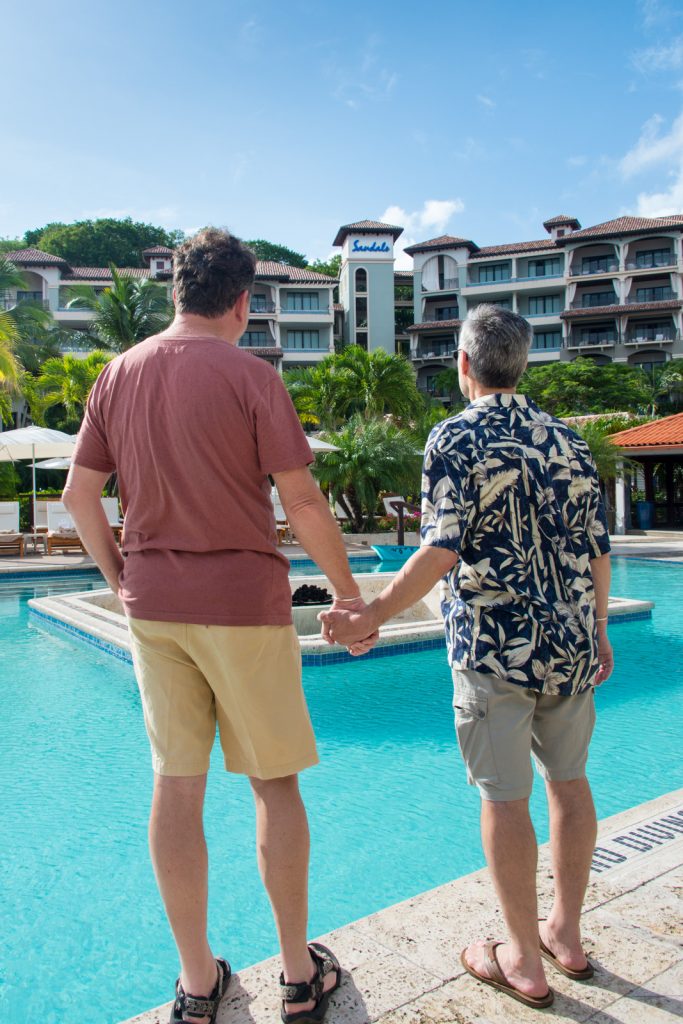
Coming Full Circle
In 2018, Chris and I were headed to the Caribbean island of Grenada. While laws against homosexuality are still in place, it’s an island we have been particularly welcomed at on multiple previous visits. By chance, we were invited to stay at the Sandals resort: The Jamaican chain had planted its flag on Grenada since our last visit.
We hardly knew what to expect. Amid honeymooners and Sandals regulars, we were welcomed at the check-in counter with warm smiles – nothing felt forced.
We were escorted to our room by a butler, a young, confident Grenadian who was taller than me. His well-rehearsed spiel described the resort’s amenities, the evening schedule and how to operate the infinity pool on our balcony. Despite plenty of opportunity, he didn’t miss a beat.
And at dinner, when we landed at the resort’s French restaurant, our waitress had laid out our initials on the table with heart-shaped glitter. We blushed.
While we noted only one other (presumably) lesbian couple at the resort during our visit, we actually started to blend in with the crowd. If we anticipated being the center of attention, just a bit, that didn’t materialize.
When I told Adam Stewart, CEO of Sandals Resorts, about our Grenada experience, he was not surprised. “I have never gotten one letter from a same-sex couple that said they were discriminated against, or that they weren’t welcomed,” said Stewart, who added that the family-owned company also did not experience negative feedback from its famously loyal clientele.
I have no idea what happened to the young Jamaican men who taunted us as we exited the cinema 35 years ago. But I’m hoping that the takeaway for them – that day, or maybe another day – was that a gay couple was less exotic, more ordinary than they expected.
Plan your next vacation with the help of a trusted AAA travel advisor.
David Swanson is a San Diego-based freelance writer-photographer and served as president of SATW, the Society of American Travel Writers, in 2018-19. His stories have appeared in National Geographic Traveler, Travel + Leisure, the Los Angeles Times and elsewhere.
This article has been updated and republished from a previous version.
2 Thoughts on “A Lifetime of Traveling While Gay”
Leave A Comment
Comments are subject to moderation and may or may not be published at the editor’s discretion. Only comments that are relevant to the article and add value to the Your AAA community will be considered. Comments may be edited for clarity and length.



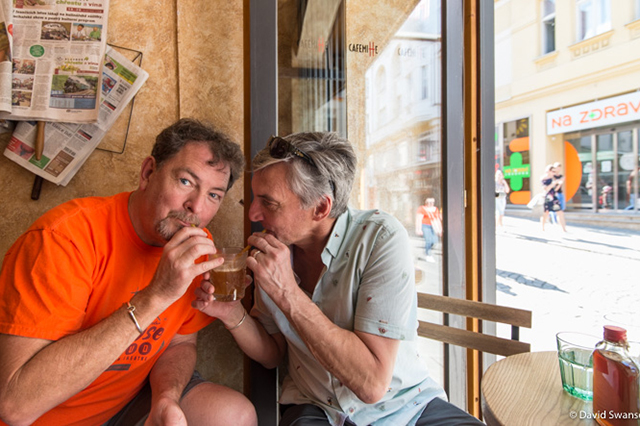

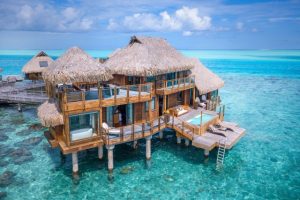
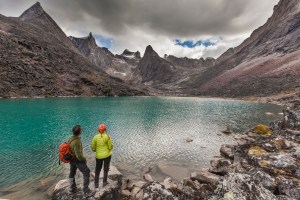
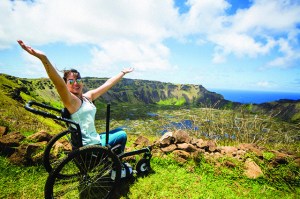









The CMI (Community Marketing & Insights) data that David referenced can be downloaded for free at http://www.CMI.info. You’ll find the 24th Annual LGBTQ Tourism Survey report, as well as three sequential LGBTQ Travel & COVID updates.
David, Thank you for this article! I have wondered about the reception of people who are victims of discrimination. I would be terrified going to Saudi Arabia as a Jew, even though a close friend and high school roommate’s family lived there (Shenever has She visits only) I love your articles, and I adore you and Chris! barb Strona